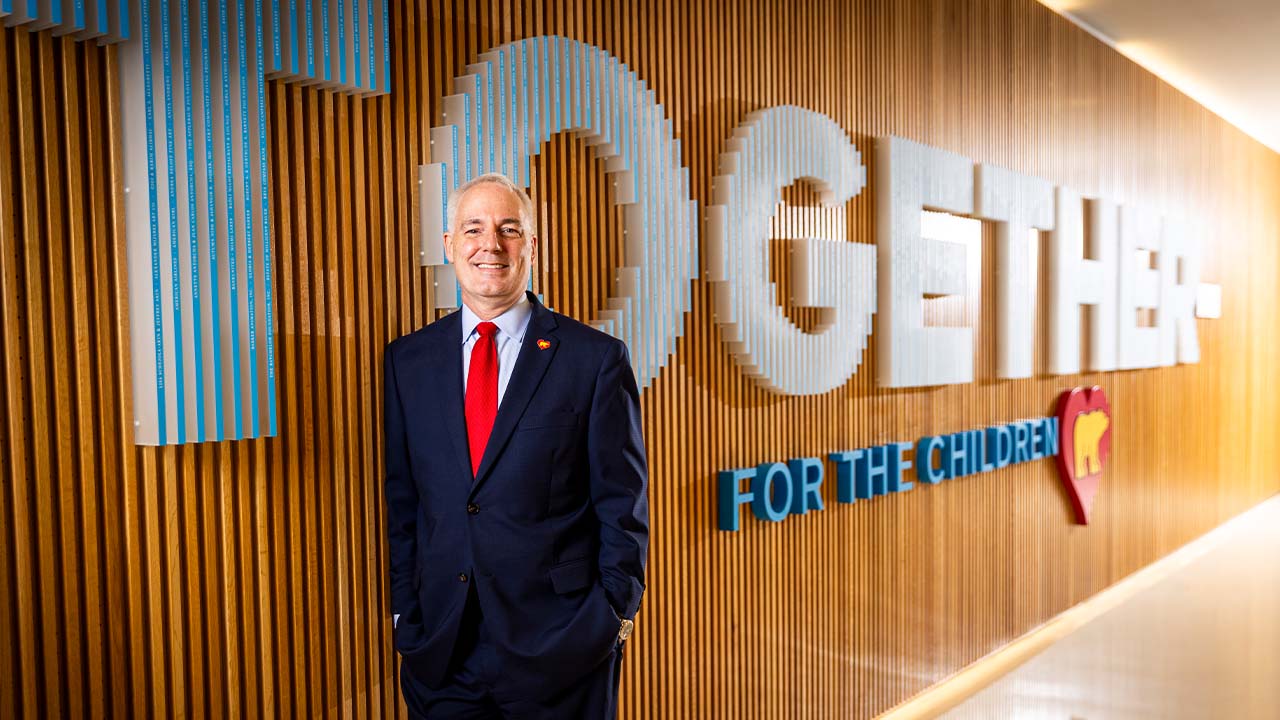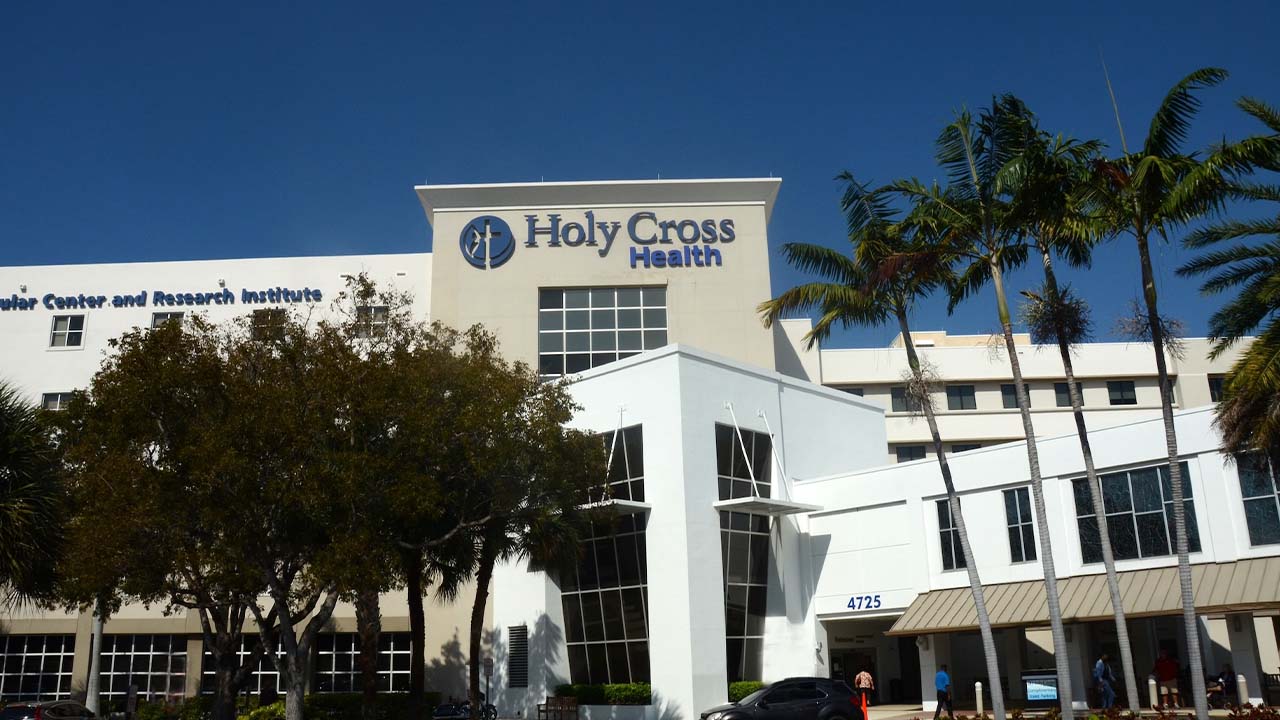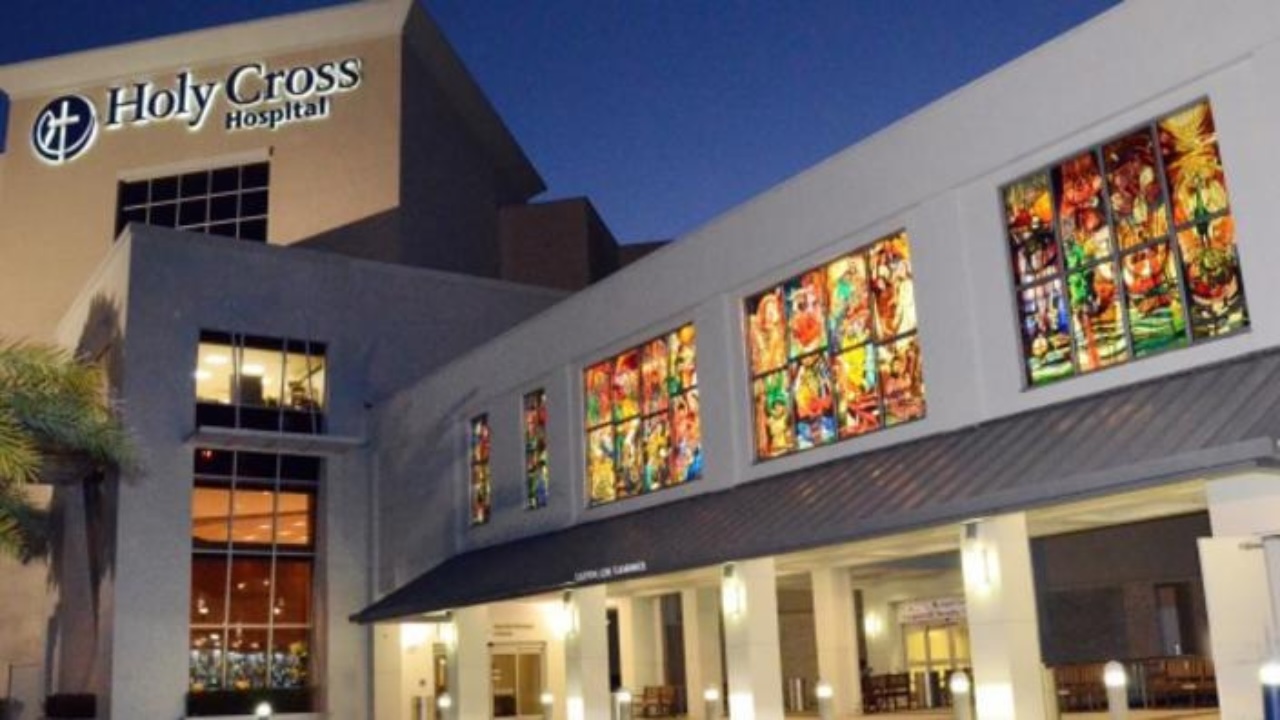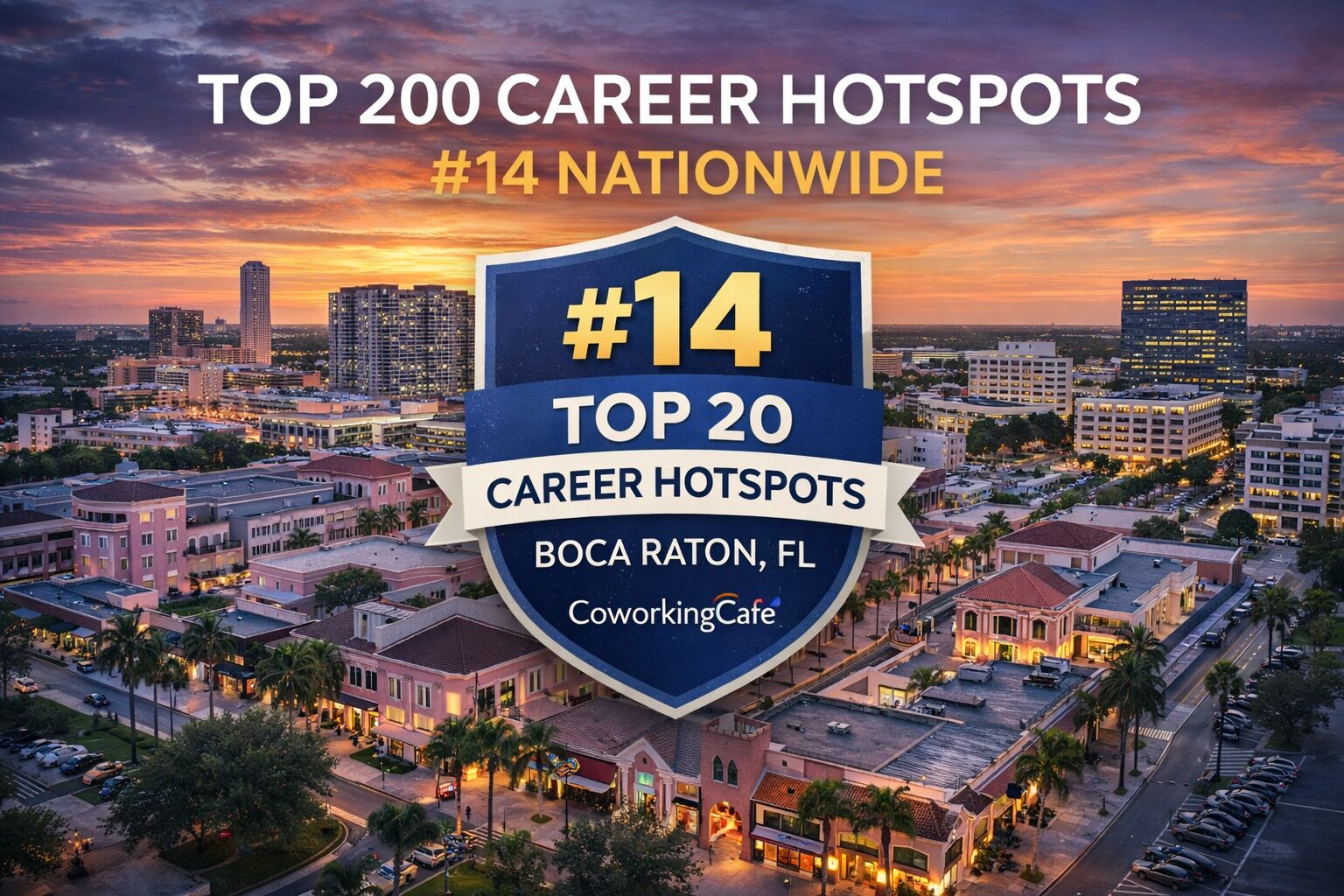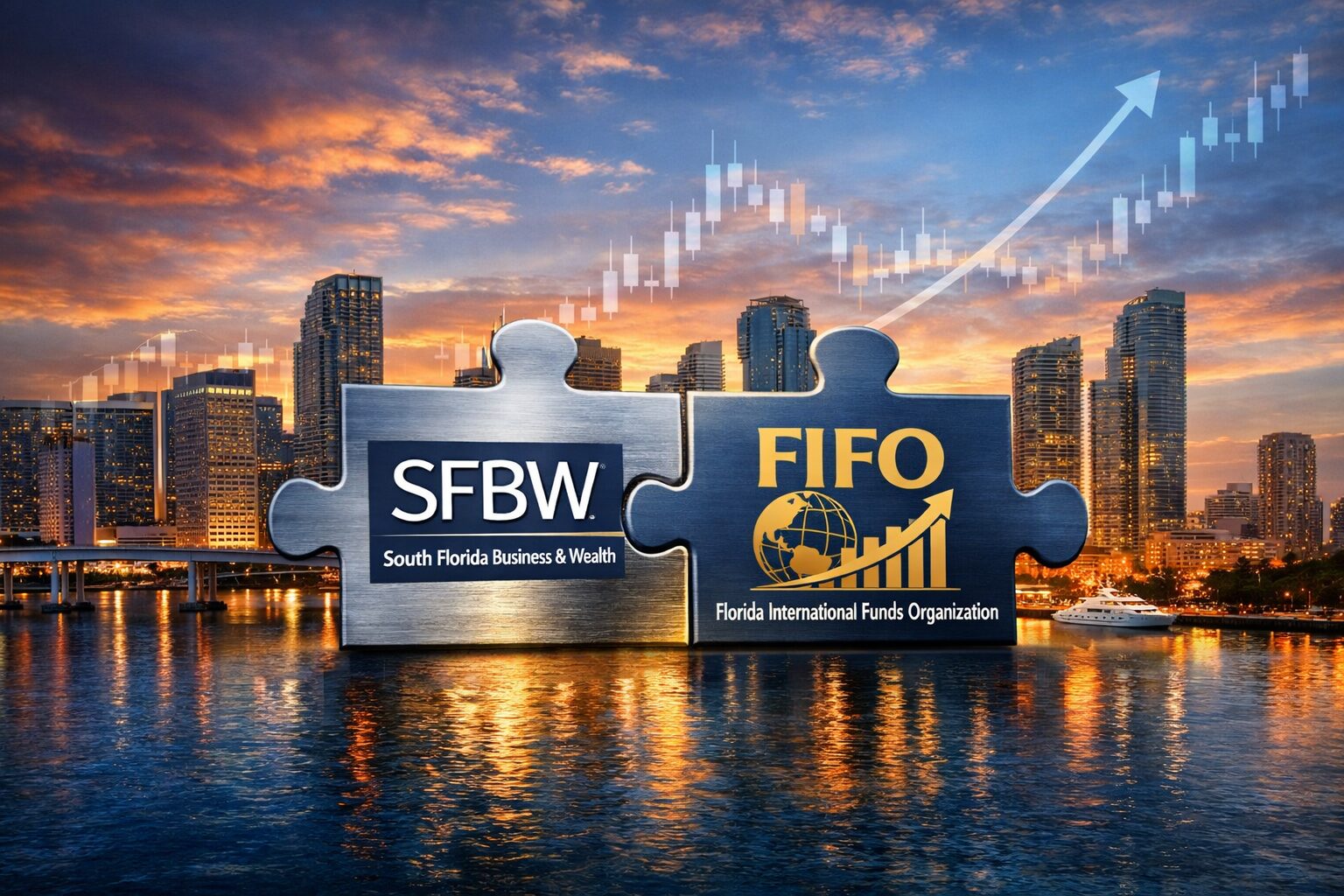Matthew Love combines financial expertise and operational experience as the President and CEO of Nicklaus Children’s Health System. What started as a casual entry into the field of health care turned into a career that led him to Miami.
He was interviewed by SFBW and Lifestyle Group Editor-in-Chief Kevin Gale at the system’s headquarters in Miami. The following Q&A was edited for brevity and clarity.
So, we’re in an elevator and I ask you to tell me why to entrust my child to Nicklaus Children’s Health System. How do you quickly win me over?
I start by saying, we’re the first and only specially licensed children’s hospital in South Florida. Everything we do is about kids – all the way from the equipment, the facilities, the people, everyone is subspecialty trained in pediatrics and it makes a difference. I would bring my kids here and grandkids here. I believe in the place that much.
With approximately 850 attending physicians, including more than 500 pediatric subspecialists, what does that say about the scope and quality of care that you are able to offer?
We’re in the people business and what we do is take care of kids. We do that with great people, great nurses, great doctors, and so really, it’s size and scope and also the quality of what we do. We can do everything from the bumps and bruises and sniffles all the way to the most complex surgeries—heart surgeries, cancer surgery and everything in between. Our size and scope matter, but it’s also about the quality. We are all the way from Homestead to up to Jupiter and all the way over to Naples. That breadth and depth of services that we offer really is due because of our size.
So, it sounds like they sort of feed off of each other. You get to a critical mass and you can financially afford to have more specialists in different areas.
Yes, and doing a lot of these complex surgeries is a big difference than if you only do a few per year.
Why would you recommend taking your child to a children’s hospital as opposed to a more general hospital that also treats adults?
The easiest way I can think about it is kids are not small adults. They’re kids for a reason. A children’s hospital has everything that you need to take care of kids and only kids—all the way from the low dose x-ray machines, to special facilities, the MRIs and the invasive procedure areas, but it’s also around the people. All of our physicians are pediatric subspecialty trained. Our nurses go back to school and have extensive work in pediatrics. Everything from facilities to equipment to people, it’s all about kids.
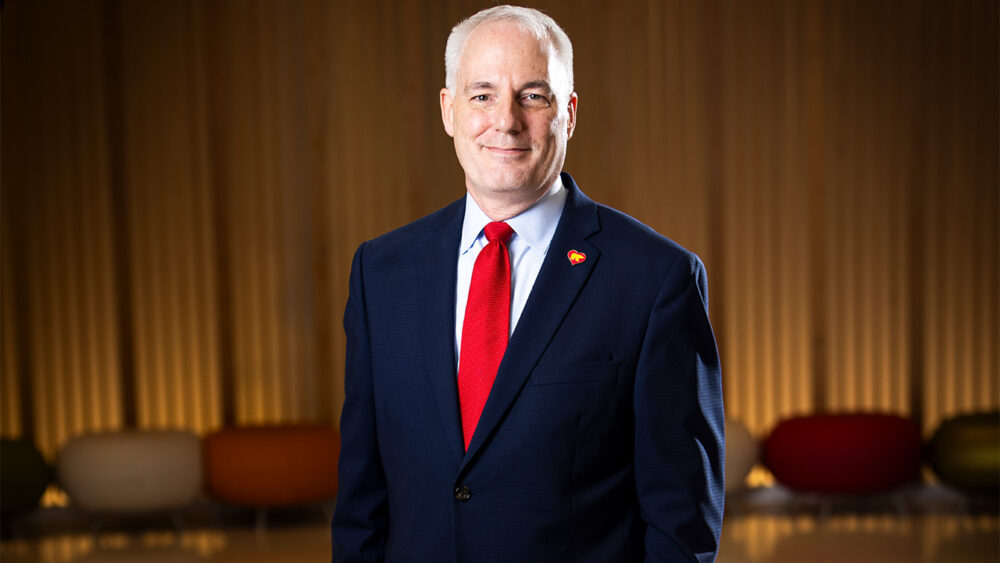
Tell our readers about the scope of locations and services that the Nicklaus system offers.
We have over 30 different locations in Miami-Dade, Palm Beach, Broward and Collier counties. We see kids from every county in the state, even outside of our geographic region. It’s really around being where the kids are. Care can be local. No kid should have to leave their community for the majority of the care. When they need us for the high-end, super sub-specialized stuff, that’s why we’re here in Miami-Dade, but our geography and our reach is important to be where the kids are.
Has this geographic spread been more of a recent phenomenon or has this happened over quite a period of time?
It’s been probably a couple of decades. We opened our Nicklaus Children’s Dan Marino Outpatient Center in Weston about 25 year ago. So, we’ve had a geographic presence for a long time. We’ve seen more in the last couple of years as we’ve expanded services, particularly over to the west coast and up into Palm Beach County.
What’s ahead in terms of locations and new services?
We’re going to continue to expand in all four counties that we provide services in. We’re going to see some intentional growth in those areas, specifically around the high end, high acuity complex care.
What are the advantages to having your child see a primary care physician who’s part of your network versus one who may not have an affiliation with a children’s hospital at all?
Once you get into the network at Nicklaus Children’s, all of that information is shared. Everybody is rowing in the same direction for taking care of kids. We believe the right care at the right place at the right time is important. So, primary care and our community physicians are truly part of that complex delivery of care model. But, once you get in, things are seamless.
Are your primary care physicians pretty much throughout the three-county area?
Yes, across all three counties there’s a heavy population of primary care and they are great community partners with us.
Talk about Jack Nicklaus, the golfer, and his wife, Barbara, and their relationship with the hospital.
Every time I think about Jack and Barbara, I get a smile on my face. As you can see, they are two champions for children’s healthcare, for pediatric healthcare. They believe in the mission, they believe in taking care of kids. They were introduced to the hospital probably eight or 10 years ago and are truly inspirational for people across the country. It started with a pretty significant gift, but it goes beyond that. It goes around their championing pediatric healthcare across the country. Barbara is a wonderful, wonderful person. She talks about our physicians being angels and Jack, he’ll talk about golf and pediatric healthcare and he’ll say, taking care of kids and doing what we do is much more rewarding than any four-foot putt that he ever did.
It seems like hospitals are getting squeezed between rising costs and the need to take care of patients versus reimbursement rates. Where are we now and what could make things better?
Just like any other industry, any other hospital currently, reimbursements and rising costs, inflation, that’s part of what we have to deal with. Dealing with that day in, day out, year in, year out is just something that we do like everybody else. What we want to do, though, is focus on delivering care. We take any child regardless of the ability to pay. While it’s important and we need to keep our eyes around the fundamentals and operational efficiencies, it’s much more important to make sure that we do high quality care and take care of every kid that comes through our doors.
Talk about the importance of people in the community supporting you in terms of donations. Do you have a foundation for people to contribute?
We have a separate foundation, the Nicklaus Children’s Hospital Foundation (give.nicklauschildrens.org). We’ve had successful years over the last couple of years around capital campaigns, capital contributions, but it’s also more than just the money. It’s around the community involvement, the community seeing the benefit of a freestanding children’s hospital, and then the philanthropy follows. We’ve seen a lot of interaction, a lot of commitment by the communities, more donors than we’ve ever had.
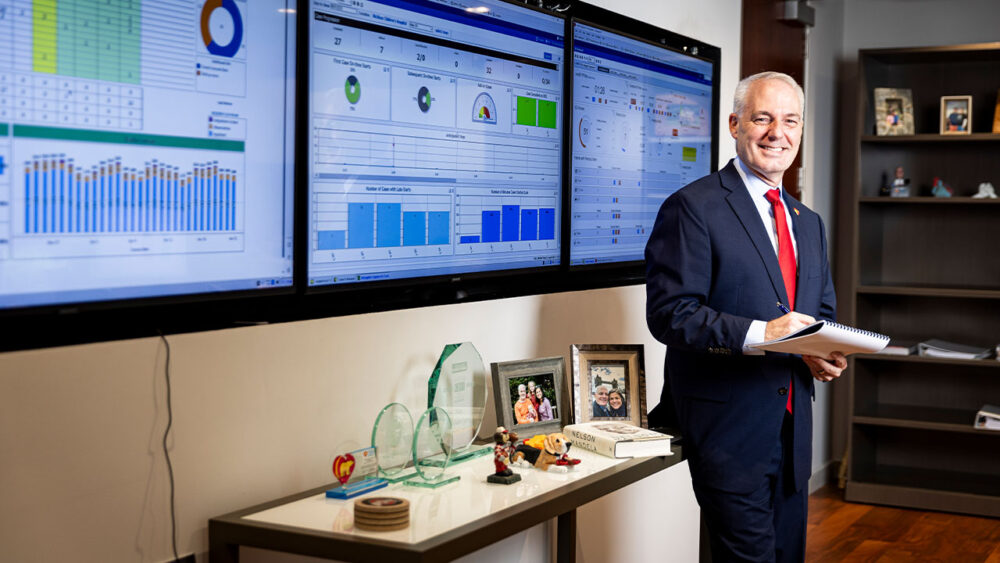
Nicklaus does very well in a lot of the US News and World Report rankings, but none of the children’s hospitals in Florida were ranked in the top three in the southeast. Is that something you aspire to and what would it take to get there?
I like to look at what’s behind those rankings. What are those characteristics of those top children’s hospitals? That’s really what we’re chasing. You think about the breadth and depth of programs and services that some of the top five children’s hospitals have across the country. That’s what we’re chasing. Across all of the different programs and services from cancer to orthopedics, we do a lot of the same things as those top ranked children’s hospitals do. Of course, we’d like to see that ranking rise, but it’s also around what’s behind it.
You went right into the healthcare field in 1992 as a management engineer at the Ohio State University Medical Center when you were apparently getting your bachelor’s degree at the university. Was that a conscious decision to get in the healthcare field or was it something you just sort of fell into and built a career on?
I wish I had the sexy answer to this one, but it was truly by accident. It was a summer job and it turned into something that I stayed on after the summer and then I just really got the healthcare bug.
How would you describe your career progression?
There’s a lot around mentorship and people that I’ve been able to look up to and that has helped me along the way. I do believe that there’s this balance between operations and finance and strategy. So, when you look back at my career, I started in operations, did a lot of day-to-day running of the business, but then got exposed to the finance side. I think some of the best things that I can help bring to the table is bringing those two together. Operations can’t survive without finance and finance can’t run the business. I like bringing those two together along with strategy and then physician relationships and growth.
What drew you to Nicklaus as CFO in 2018?
I’ve worked at a couple children’s hospitals in the past, one in Memphis and one in Cleveland, and then got in the adult world. I wanted to get back in pediatric healthcare. As I was looking in the 2017-2018 time period, I was very conscious about looking for a freestanding children’s hospital.
What was it like making the transition to president and CEO in 2019?
What do they say? Don’t be afraid to take that leap of faith or something along those lines. It’s ironic when you look back, you realize what you didn’t know. When you look at it from a finance perspective, you have a certain lens. When you look at it from the president/CEO perspective, you have a different lens. Bringing those two together was the best thing that ever happened to me. Part of it is because I’m able to do the things that I love. I love finance, I love operations obviously, but as CEO, being able to bring those two together is wonderful and you really do that through hiring great people. In my role now, I am able to do that much more so than in my prior roles.
How did the organization get through the challenges of the pandemic and is it still having a long tail impact?
When you look back, who could have predicted the pandemic then? Who could have predicted how long and the impact it had? I remember sitting in the office, we were kind of trying to plan for this, and we all thought it was going to be some small event, short period. Who knew? And then we woke up and it was, what, two years later? The pandemic for us, really brought people together. There was a common purpose. It was scary back then. Very scary, very scary, especially at the beginning. But, because we had great people and great purpose, we’re able to do that. Unlike the adult side, it had a different impact on kids. Adult hospitals were full, pediatric hospitals were basically empty overnight. So, our ability to respond to that and do the things that we needed to was huge.
I remember sitting, probably in this room, and thinking about the impact of a pandemic. Once you look at it 50 years down the road, we’re going to view it as having the same impact as other big events in history, the Great Depression, the plague, all of those things that were a century or two ago. I believe the pandemic has changed us fundamentally as a country, as a world, and in healthcare. Telehealth is now present. Things that work remotely are now present. None of that would’ve happened without an external event like the pandemic.
What other major challenges, if any, have you had since becoming CEO and how are you addressing them?
We see some of the same challenges everybody else sees: rising costs, reimbursements, talent, and we really focus on those at the core every day, focus on the fundamentals. One of the things that we did five or six years ago was kind of reintroduce this idea of focusing on the fundamentals. We have to do things right every single day, every single week, every single month, every single year. You look at access and how we deliver services—are we hitting on all cylinders? One of our biggest things that we had to respond to over the last two to three years is responding to growth. We have grown significantly over the last couple years, and so scaling is important, hiring people in the right places is important, and really managing that growth has been something that we’ve been focused on.
Talk a little bit about your family, any hobbies, how you try to balance work and personal time.
Like for most executives, it’s important to make sure that there is a balance. I have a wonderful family. I married my high school sweetheart, Lisa. We’ve been married for 31 years this year. Super happy about that. That’s really what drives me. I have two wonderful kids, Cody and Abbe, who are now adults and two wonderful grandchildren. What I tell folks is what we do here is super important, not just because of the kids that walk through our doors, but because our kids need these places too. My daughter actually had to go to a children’s hospital at some point early in her life, and it was different. I never missed one of my kids’ events, whether it was a baseball game, volleyball game, golf match, and that was because that happened when I was growing up. My mom never missed a thing. I do believe we have to make sure we make that a priority. What we do is super important, and I love what I do, but I also love being a husband and a father and a grandfather too.
What fields are your children in?
My son is super successful. He works in a machine shop in Youngstown, Ohio. My daughter just entered healthcare.
What kind of degree is she getting?
She has an undergrad in business and just finished with the MBA healthcare focus.
Sounds a little like she could follow dad’s footsteps there. Is there anything we haven’t talked about that you would like to share?
I really believe that you have to do what you love and that makes things so much easier all the way around from coming into work, staying late, whatever it is. But also from a personal perspective, it makes you a much happier person. And so doing what you love and being happy is absolutely an important part of what we all do. And there’s nothing I’d rather be doing than taking care of kids and running Nicklaus.
Corrections: Matthew Love’s title was incorrect in an earlier version of this article. The name for the health system’s foundation incorrectly referred to one operated by Jack and Barbara Nicklaus.
Matthew Love portrait photography by Eduard Schneider. Additional photography courtesy of Nicklaus Children’s Health System.


